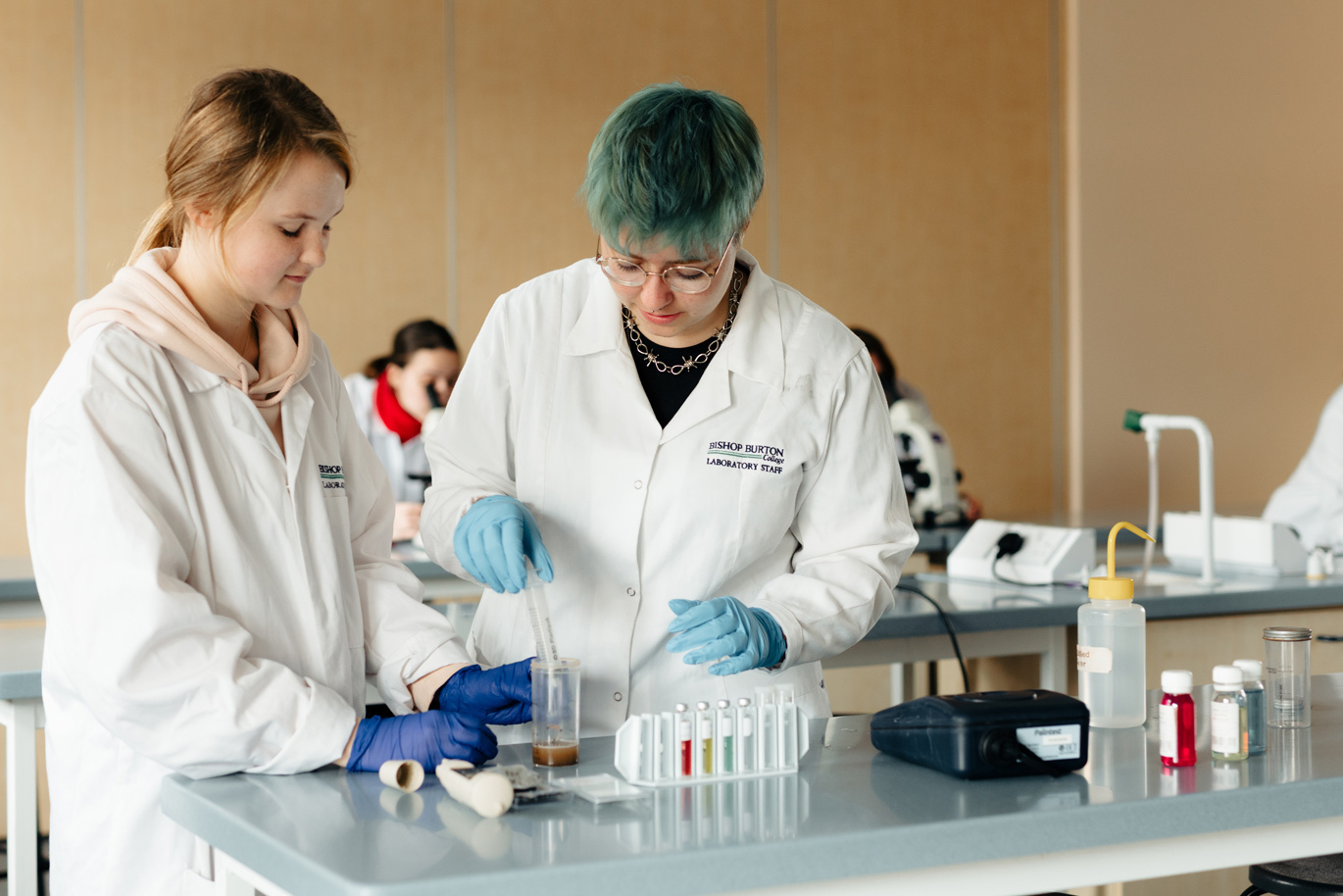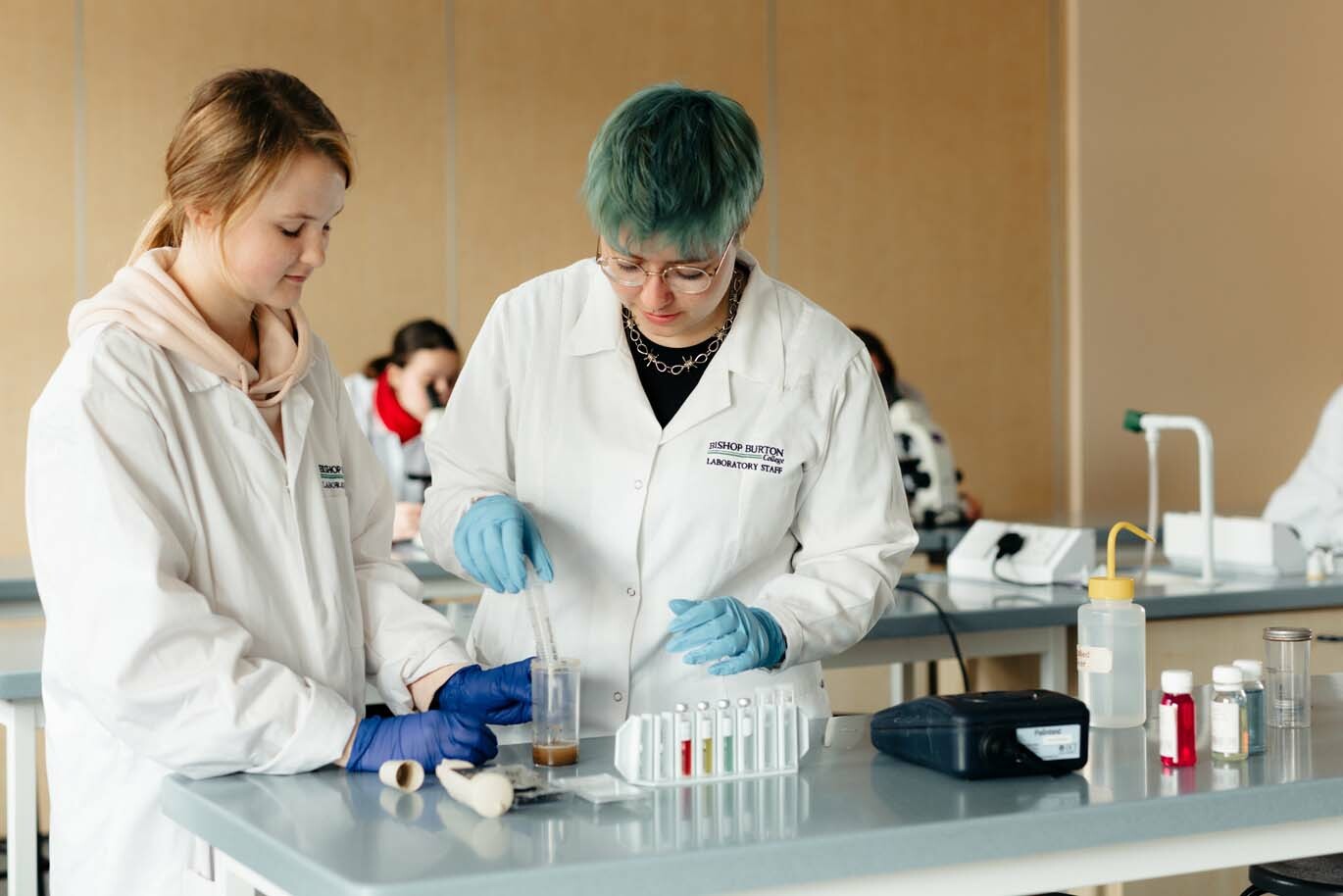The College campus will be closed on Tuesday 22 April due to an unforeseen power outage. Students have been sent communications regarding their requirements for the day. Students can return as normal on Wednesday 23 April to the campus. Thank you for your understanding.

HNC Animal Management (Behaviour and Welfare)
Apply Full-Time Apply Part-Time Enquire about this course Download PDFJump to
Subject
Animal Sciences
Level
HNC (Level 4)
Study Mode
Full-Time
Duration
1 year full-time/2 years part-time
Start Date
September 2025
The course
This course will provide you with sound academic and practical knowledge of the disciplines and factors that relate to animal management and welfare. It has been designed to give you the opportunity to acquire knowledge of animal husbandry, anatomy and physiology, animal behaviour, animal nutrition and business.
There is an increasing demand for people with a combination of both academic and practical competence within the animal management sector, therefore, the programme is vocational, with an applied nature of both practical and theoretical aspects fundamental for a career within this area.
Course Information
- Enable you to identify and discuss the anatomical and physiological systems, including cellular structure and metabolic processes essential for life, in a range of animals
- Develop your skills to handle, observe behaviour and maintain health and husbandry practices by monitoring as appropriate of both wild and domesticated species, in appropriate environments
- Allow you to conduct experiments in both laboratory environments and field conditions, using a range of specialist technology and equipment in a safe manner
- Ensure you can recognise and discuss techniques and practices of the feeding and nutrition of animals and evaluate how these relate to the animal industry
- Able you to communicate effectively to a range of audiences in a variety of formats
- Develop your ability to reflect on your own personal strengths and weaknesses and formulate strategies for improvement
- Ensure that you can demonstrate the skills required for employment or further study
- Animal health and welfare
- Business and the business environment
- Animal husbandry
- Animal anatomy and physiology
- Animal behaviour in society
- Animal nutrition
- Animal collection management
- Managing a successful project
You will need:
A minimum of 48 UCAS points
OR
A relevant BTEC Level 3 and significant industrial experience
Plus
GCSE English 4 or above or equivalent
A suitable reference
UCAS points may be from qualifications such as T Levels, A Levels, BTEC Level 3 Extended Diplomas, Access to Higher Education Diplomas, and City and Guilds Advanced Technical Diplomas amongst others. Please use the UCAS Tariff points calculator to determine the UCAS points value of your qualifications.
Life and/or experience of non-traditional students will be taken into account when considering applications. The successful completion of an entry task may be required when considering applications without the required formal entry qualifications.
If an applicants first language is not English, or a Tier 4 student visa to study is required and GCSE English at grade 4/C or equivalent is not held, they will need to evidence their English language proficiency level, such as International English Language Testing System (IELTS) 6.0 overall (with a minimum 5.5 in each skill).
Advanced entry may be possible due to prior experience or certificated learning; applicants will be invited to complete the recognition of prior learning approval process.
This programme is delivered with a variety of learning and teaching approaches to include all students learning styles and preferences.
For all modules, theory lectures are delivered that aim to deliver the core content and provide the underpinning knowledge.
To complement the theory lectures, you will have group seminars/practical sessions that are used to reinforce concepts delivered theoretically. The teaching methods focus on facilitating a student-centred approach to enhance the independent learning that takes place outside of the classroom.
The full-time route incorporates approximately 17-21 hours of contact time per week, encompassing lectures, seminars, practicals and tutorials.
You are also expected to carry out a significant amount of independent study in addition to contact time (approximately 25-30 hours a week). Independent study includes reading around the subject, preparing for tutorials and seminars, preparing for, and completing, module assessments; forming an essential part of your learning journey.
The part-time route incorporates approximately 9-13 hours of contact time per week, encompassing lectures, seminars, practicals and tutorials.
You are also expected to carry out a significant amount of independent study in addition to contact time (approximately 12-15 hours a week). Independent study includes reading around the subject, preparing for tutorials and seminars, preparing for, and completing, module assessments; forming an essential part of your learning journey.
You can expect to receive your timetable during induction week.
- A tablet, laptop or stationery to take notes in lectures and seminars.
- College-branded white laboratory coat.
- College-branded blue kennel coat.
- Appropriate waterproof outdoor clothing and footwear for outdoor practicals.
- Strong steel toe capped boots for practical sessions.
- The college has a strict policy of not allowing work boots inside college buildings you will need to have alternative footwear (shoes or trainers) to attend lectures and tutorials.
- Roughly £300 to cover the costs of field trips and visits over the duration of your programme.
- On successful completion of the programme, you will have the opportunity to graduate at a ceremony wearing formal dress. The hire of the formal dress is an additional cost.
Validated by Pearson
We are proud to collaborate with Pearson on the validation of this course.
View the policies and procedures you would be agreeing to comply with by registering for this programme.
Financial Information
Find the full details of the fees associated with this programme and the financial support available.



